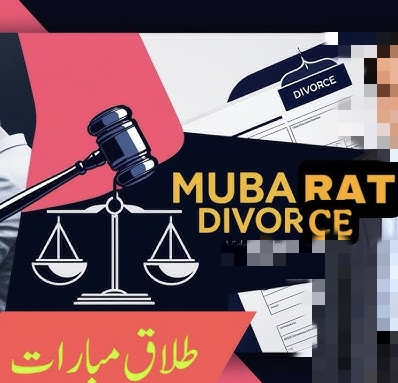Ahmedabad: The Gujarat High Court has upheld the validity of Mubaraat—a form of divorce under Muslim Personal Law based on mutual consent—without the need for a written pact, affirming that oral mutual agreement is sufficient to dissolve a marriage.
In a detailed judgment delivered earlier this month, a Division Bench comprising Justice A.Y. Kogje and Justice N.S. Sanjay ruled that written documentation is not mandatory for a valid Mubaraat. The court overturned a Rajkot family court decision that had dismissed a couple’s petition on the grounds that a written record was essential.
“There is nothing to suggest that there has to be a written agreement of Mubaraat. A written agreement is not prescribed in the Quran, Hadith, or customary Muslim Personal Law,” the Bench observed in its 21-page verdict.
Mubaraat—meaning “release from each other”—is a mutual form of divorce where both husband and wife agree to part ways. Unlike Talaq, which is usually initiated by the husband and can be revoked, Mubaraat is final and can be initiated by either spouse. The judges referred to verses from Surah An-Nisa (4:128–130) of the Holy Quran, which deal with reconciliation and separation between spouses, to reinforce their decision.
The case involved a couple married in 2021 who had been living separately due to irreconcilable differences. They sought dissolution of marriage through Mubaraat. The lower court had rejected their plea, stating that a written agreement was mandatory. Challenging this, the couple argued that under the Muslim Personal Law (Shariat) Application Act, 1937, mutual consent alone is sufficient. The High Court accepted their contention, holding that the absence of a written document cannot invalidate the divorce.
The High Court directed family courts to treat petitions for extra-judicial divorces under Muslim Personal Law as maintainable under Section 7 of the Family Courts Act, 1984. Courts must record the statements of both parties, and if an agreement such as Talaq Nama, Khula Nama, or Mubaraat Nama exists, it should be produced. After verifying the consent, the court shall declare the marriage dissolved.
Further, the Bench instructed that such proceedings should be completed within three months of receiving the High Court’s order, taking into account the age and future prospects of the parties. This judgment is expected to serve as guidance for family courts across Gujarat, ensuring that cases of Mubaraat divorce are handled in accordance with Quranic injunctions and Muslim Personal Law rather than rigid procedural formalities.




